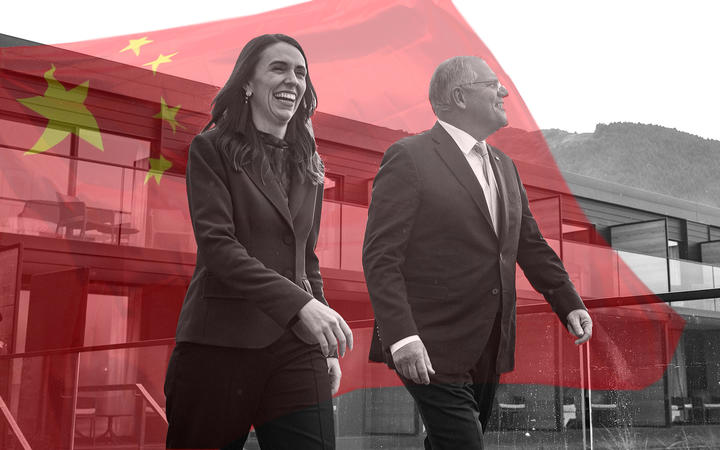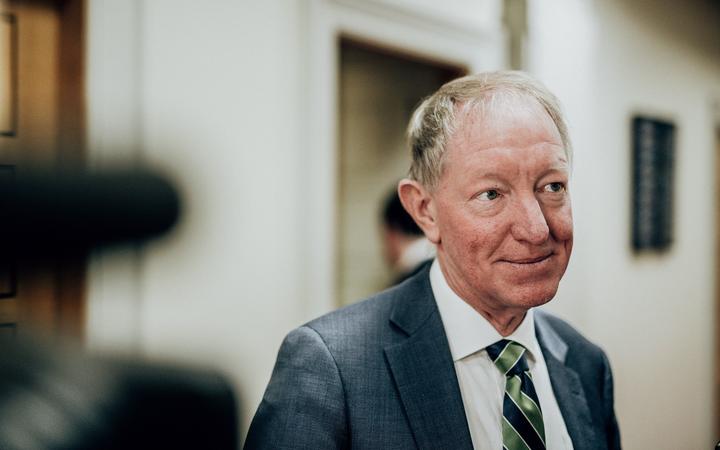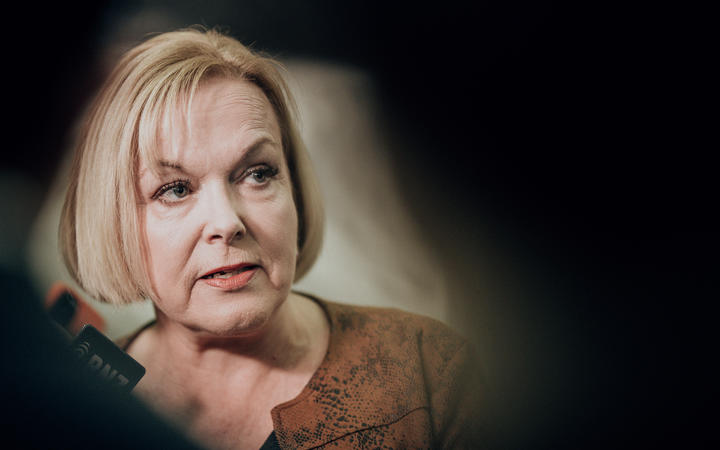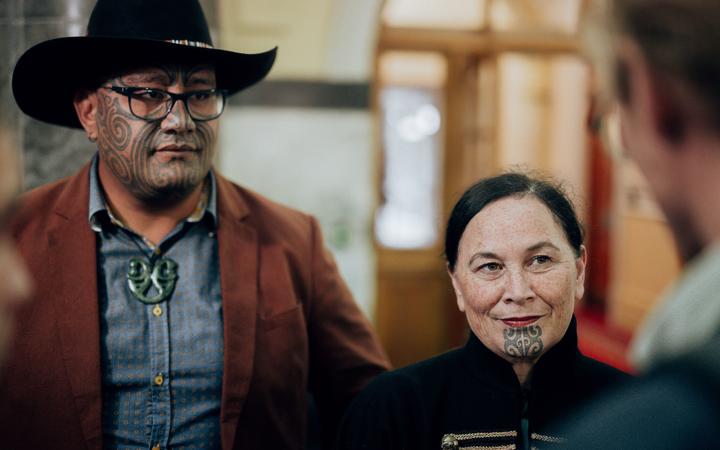Analysis – A joint statement issued by the prime ministers of New Zealand and Australia after talks in Queenstown drew an irate response from China this week.
 Photo: 123RF , Joe Allison / Pool / AFP
Photo: 123RF , Joe Allison / Pool / AFP
Jacinda Ardern and Scott Morrison held their first face-to-face meeting since the pandemic began and there is no doubt it was a success.
“Never since the days of sleepovers by John Key at the Sydney mansion of Malcolm Turnbull has there been such trans-Tasman bonhomie,” said Newstalk ZB’s political editor Barry Soper. “Any differences were left on the welcome mat as they presented their united front.”
Morrison seemed determined to dispel any notion that their respective positions on China had harmed either the bilateral friendship or the Five Eyes relationship.
He said there was no difference between their stances when it came to China’s trade and human rights issues.
“There are those who would seek to undermine Australia and New Zealand’s security by seeking to create points of difference which are not there,” Morrison said.
Ardern said the two governments had consistently been broadly positioned in exactly the same place.
Read Jane Patterson’s report for all the details and the full text of the joint statement issued after the talks.
The prime ministers set out the areas in which they were working together. They expressed their “serious concern” over developments in the South China Sea, their “deep concern” over limitations on the rights and freedoms of people in Hong Kong, and their “grave concerns” about the human rights situation in the Xinjiang Uyghur autonomous region.
China is highly sensitive to criticism on those issues and Foreign Ministry spokesperson Wang Wenbin, speaking in Beijing, responded.
“The leaders of Australia and New Zealand, with irresponsible remarks on China’s internal affairs relating to Hong Kong and Xinjiang as well as the South China Sea, have made groundless accusations against China, grossly interfered in China’s internal affairs and seriously violated the international law and basic norms governing international relations,” the NZ Herald quoted him as saying.
Ardern rejected the criticism, saying recent statements had “really just been a reiteration of New Zealand’s position”.
Just ahead of Morrison’s arrival the government announced New Zealand would become a third party in a trade dispute between Australia and China, another move likely to upset Beijing.
That means it will support Australia as a matter of principle over fair trade laws.
Australia took its case to the WTO after China imposed an 80 percent tariff on Australian barley. Stuff reported it was widely seen as a sanction in response to Australia’s calls for an investigation into the origins of Covid-19.
Australian Trade Minister Dan Tehan said it had effectively stopped the barley trade with China.
New Zealand Trade Minister Damien O’Connor said the government was not asked to join as a third party.
Running a close second in the media this week was the curious case of Dr Nick Smith.
 Outgoing National MP Nick Smith. Photo: RNZ / Dom Thomas
Outgoing National MP Nick Smith. Photo: RNZ / Dom Thomas
The veteran National MP proactively issued a statement on Monday announcing his retirement from Parliament, citing personal and professional reasons.
One of the reasons he gave was that details of an employment dispute he was involved in last July, which was being investigated by the Parliamentary Service, had been leaked to the media.
Smith set his departure date as 10 June, next Thursday.
He said in his statement he had been advised that details of the investigation would be made public on Tuesday.
No details were published on Tuesday and none had been published by the end of the week. No media organisation has claimed to have the details of the investigation being carried out into what Smith himself described as a verbal altercation with a staff member in his Wellington office.
Smith said he had apologised at the time and wanted to do so again, publicly.
The Herald reported the staff member had worked in Smith’s office for less than a year, and Stuff said the complainant was a third person who had made a recording of the altercation.
Collins told RNZ she did not know the person who made the recording personally, but they no longer worked for the National Party or Parliamentary Service.
 National Party leader Judith Collins Photo: Dom Thomas
National Party leader Judith Collins Photo: Dom Thomas
The head of the Parliamentary Service, Rafael Gonzales-Montero, said his staff had not leaked details of the investigation.
Speaker Trevor Mallard would not say anything other than that the complainant had been given a copy of the draft investigation report.
Politik reported National’s leader Judith Collins told Smith last Friday that the report would be published on Tuesday, and that she told her caucus last month a scandal was about to break involving one of the party’s MPs.
Interviewed on Morning Report, Collins did not confirm or deny that she had warned Smith. She said she had not known he was leaving until the day the news broke.
“He had spoken to me last year and said that he didn’t think he was going to see out the whole of the term,” she said. “He was certainly not happy about being a list MP, having been ‘Nick4Nelson’ for 30 years and losing a seat at the election.”
In other news this week:
-
- The Māori Party called for a joint taskforce to investigate anti-Māori hate speech coming from white supremacist organisations. It wants the SIS and police to be involved.
Co-leaders Rawiri Waititi and Debbie Ngarewa-Packer cited a YouTube video they said incited violence towards Māori.
 Māori Party co-leaders Rawiri Waititi and Debbie Ngarewa-Packer Photo: RNZ / Dom Thomas
Māori Party co-leaders Rawiri Waititi and Debbie Ngarewa-Packer Photo: RNZ / Dom Thomas
They met with the minister responsible for the SIS, Andrew Little, to express their concerns and later said no formal commitment had been made but they were pleased with his willingness to engage.
The party also lodged an official complaint with the Independent Police Conduct Authority over the investigation into the video. Ngarewa-Packer said she was disappointed with the police response to it. “Communication and response time was inadequate, the police have continued to minimise the nature of the threat against us and our people.”
-
- Local Government Minister Nanaia Mahuta received study reports saying the cost of overhauling the country’s decrepit water systems could cost $120 billion to $185bn in extra investment.
Difficult political decisions about charging for water was one of the most immediate challenges, the analysts said. Mahuta said the government’s intentions would be announced “in the coming months”.
-
- A National MP’s bill reforming governance regulations for apartments, townhouses and other types of high-density property looks set for an easy ride through Parliament after the government indicated it was keen to support it, Stuff reported.
The bill is being promoted by Nicola Willis, and associate housing minister Poto Williams wrote to her asking whether the government could take it over. Willis turned that down, saying it could mean further delays.
Submissions on the bill are currently being heard by a select committee.
